Abstract
The form frequently taken by behavior-modification programs is analyzed in terms of the parent science, Behaviorism. Whereas Behaviorism assumes that behavior is the result of contingencies, and that lasting behavior change involves changing the contingencies that give rise to and support the behavior, most behavior-modification programs merely arrange special contingencies in a special environment to eliminate the "problem" behavior. Even when the problem behavior is as widespread as alcoholism and crime, behavior modifiers focus on "fixing" the alcoholic and the criminal, not on changing the societal contingencies that prevail outside the therapeutic environment and continue to produce alcoholics and criminals. The contingencies that shape this method of dealing with behavioral problems are also analyzed, and this analysis leads to a criticism of the current social structure as a behavior control system. Although applied behaviorists have frequently focused on fixing individuals, the science of Behaviorism provides the means to analyze the structures, the system, and the forms of societal control that produce the "problems".
Full text
PDF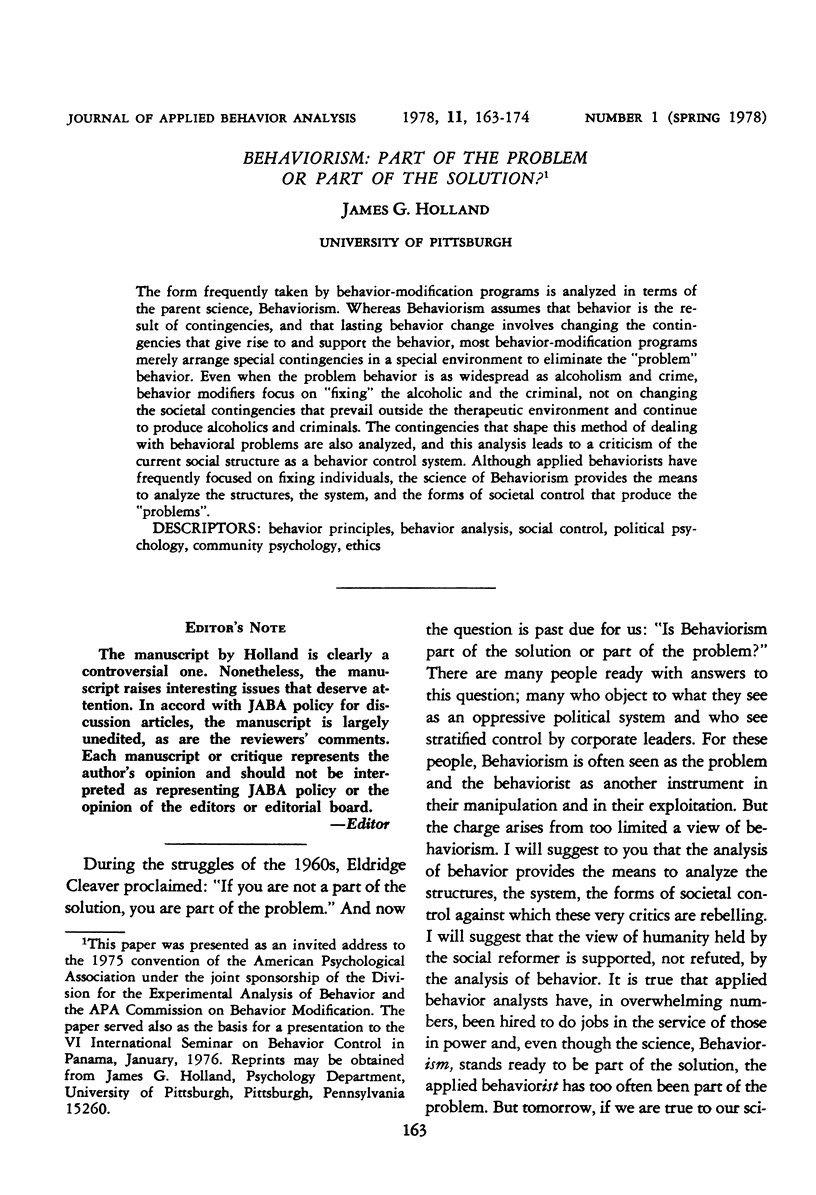
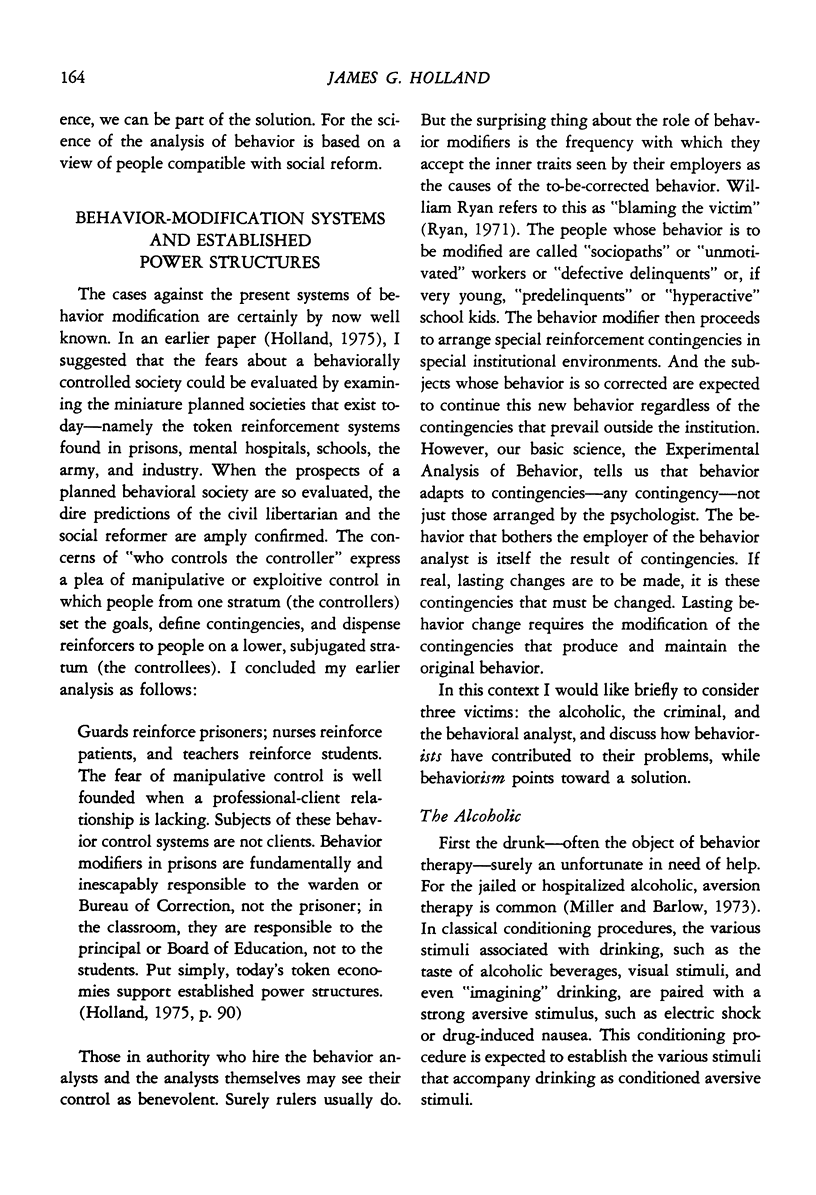
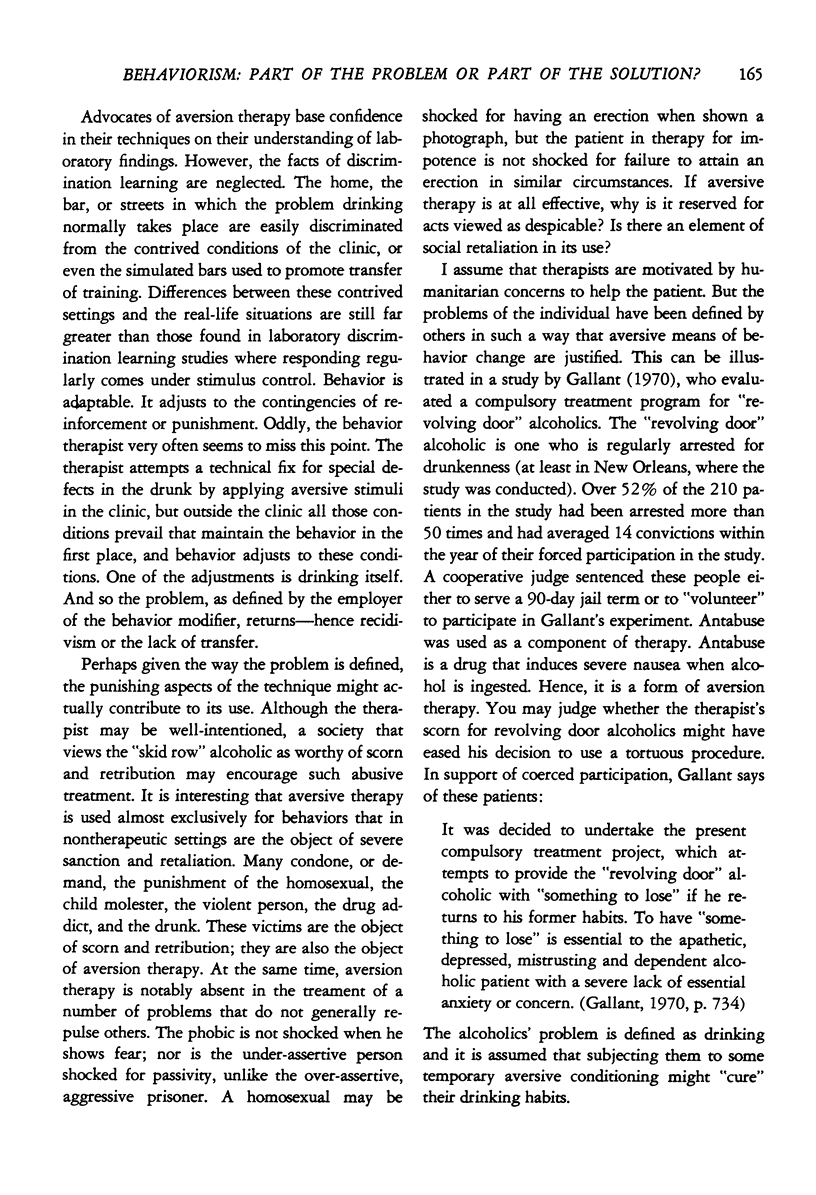
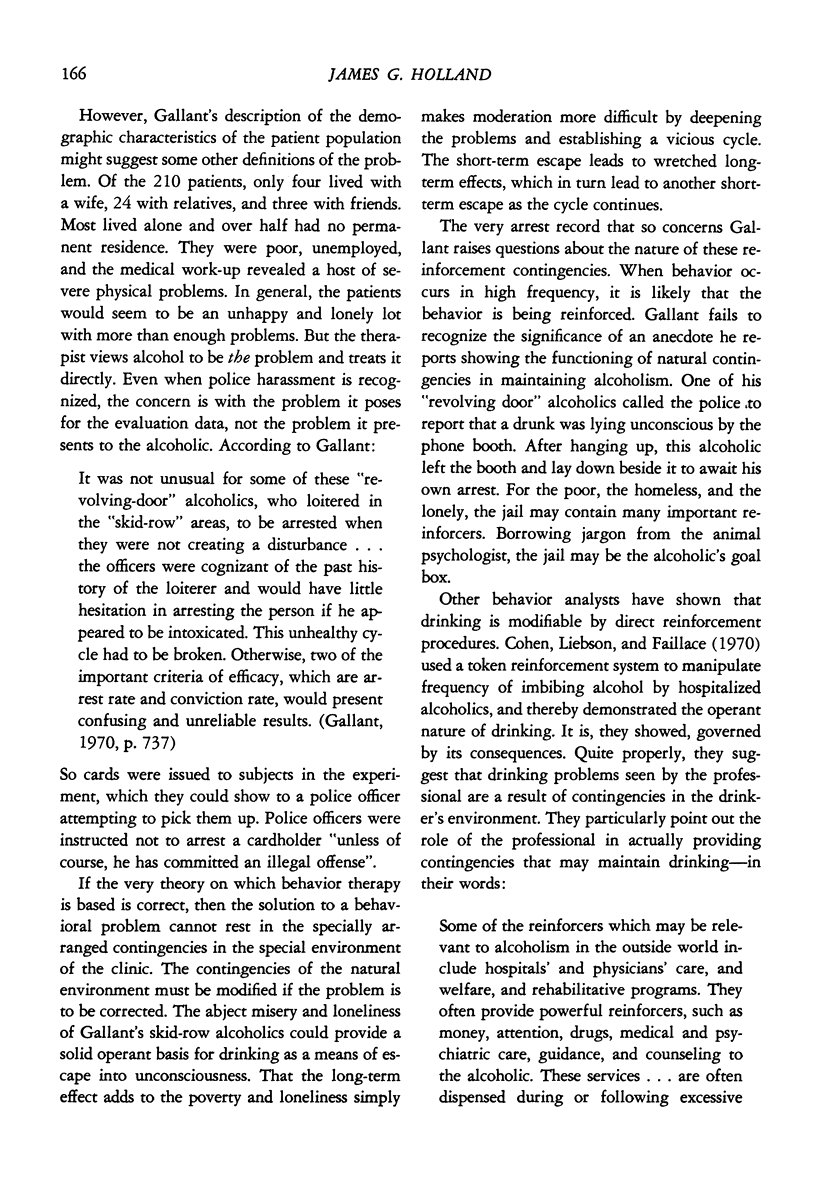
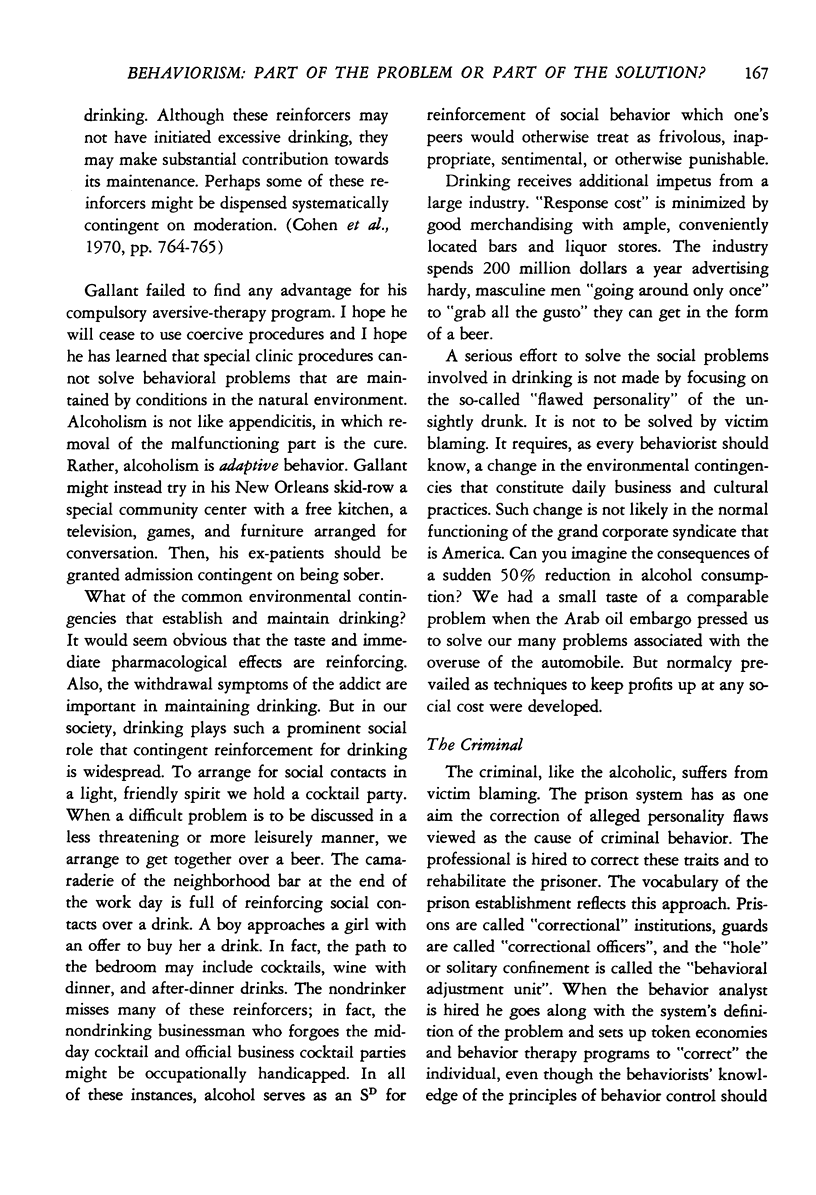
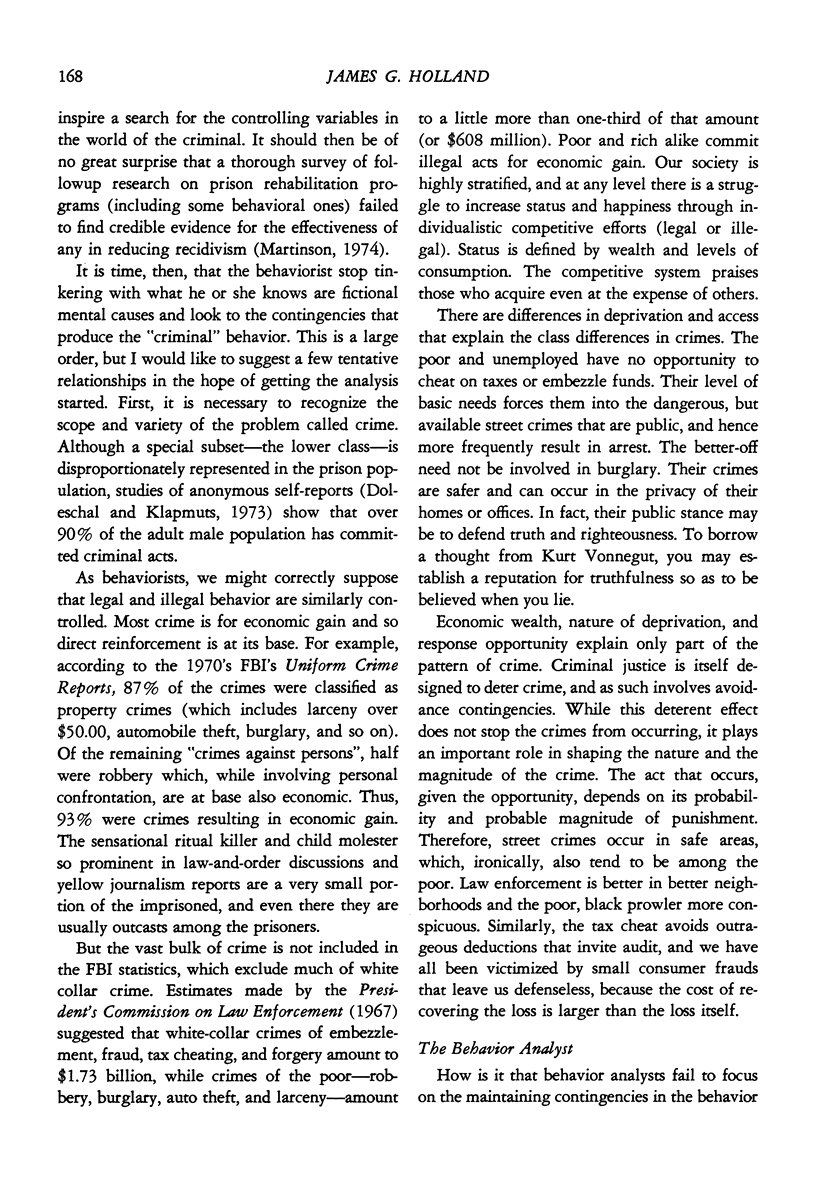

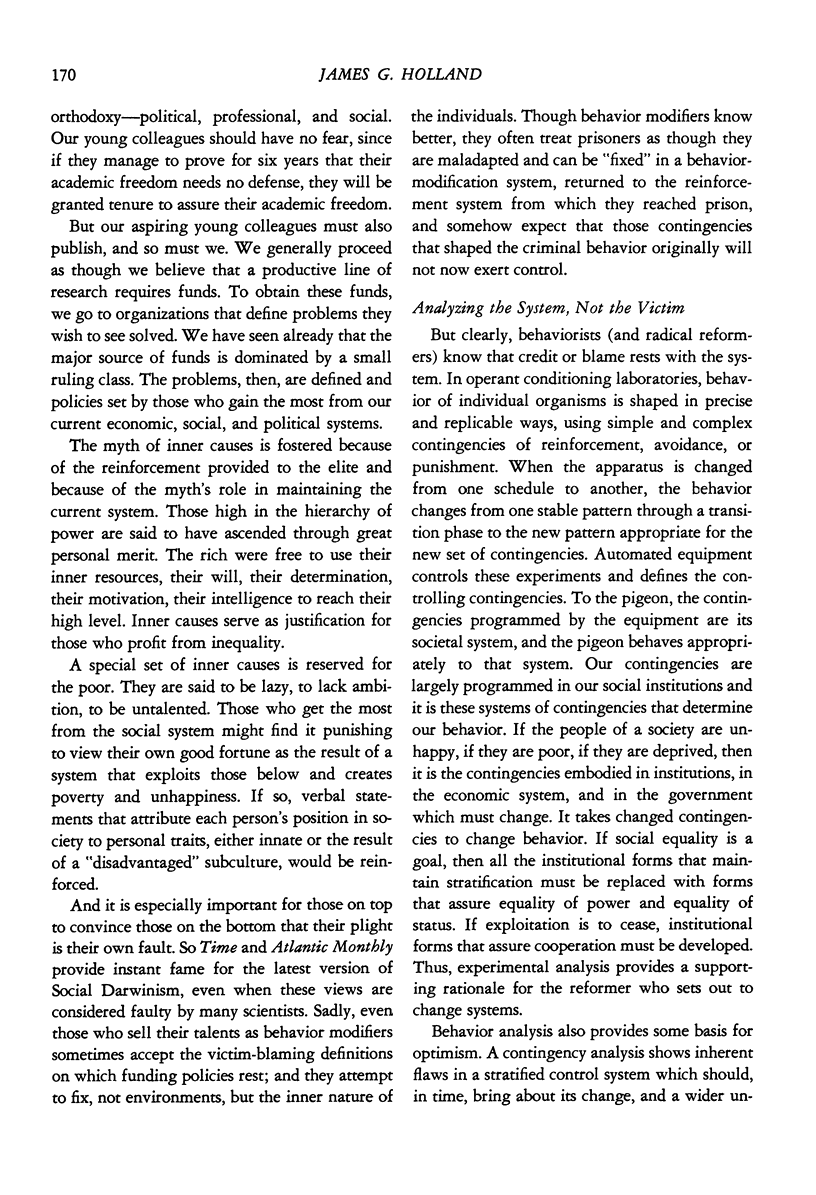
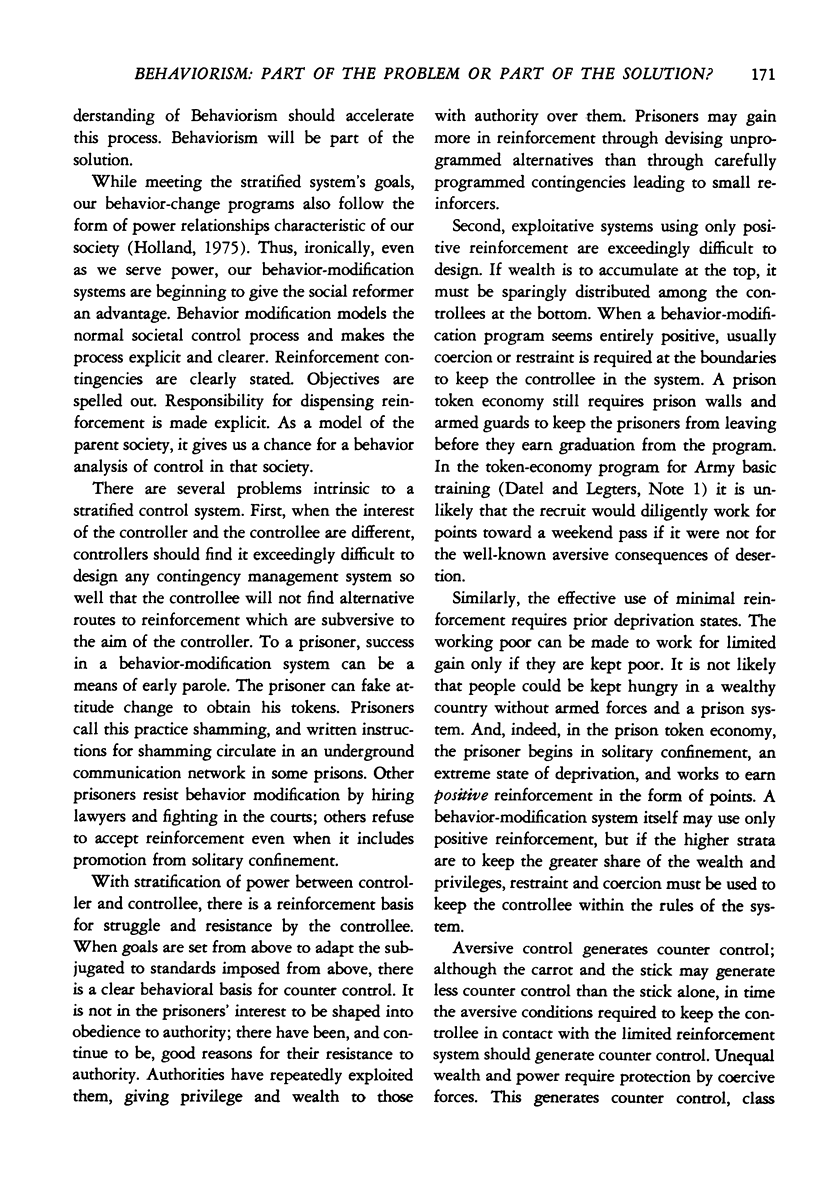
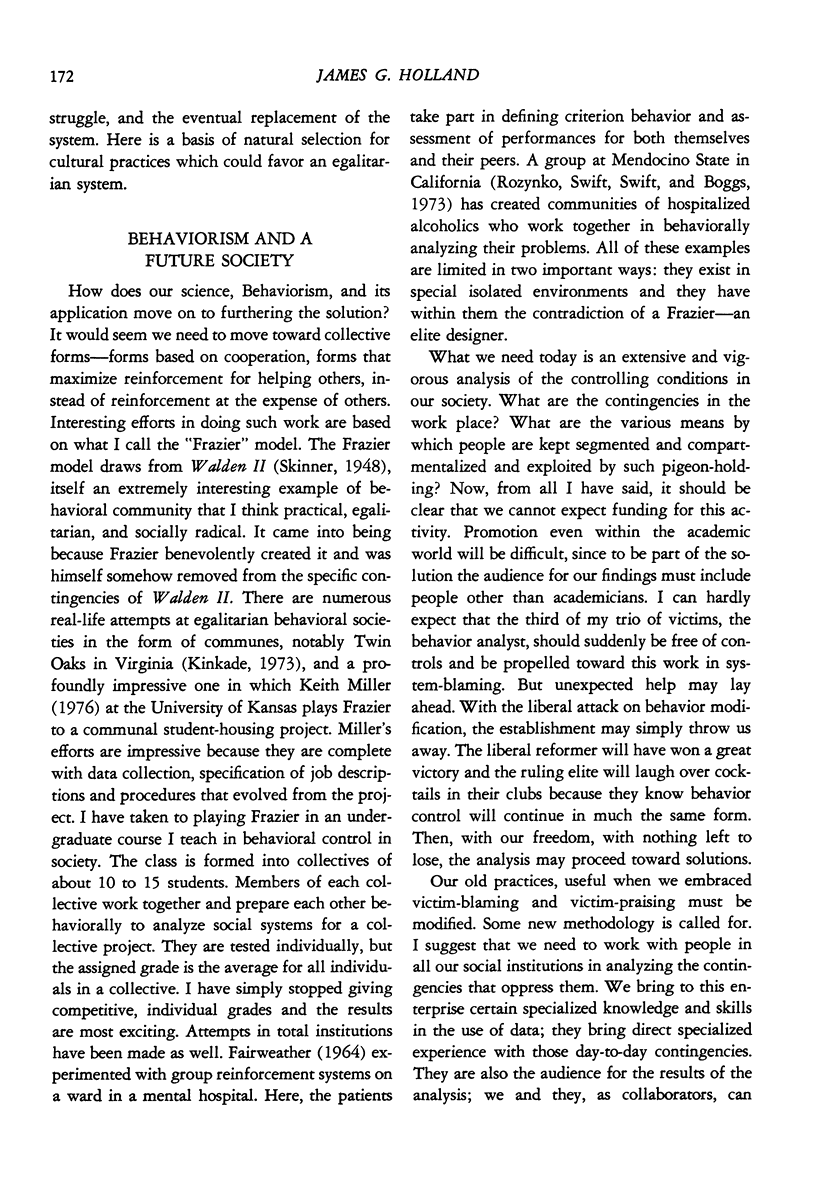
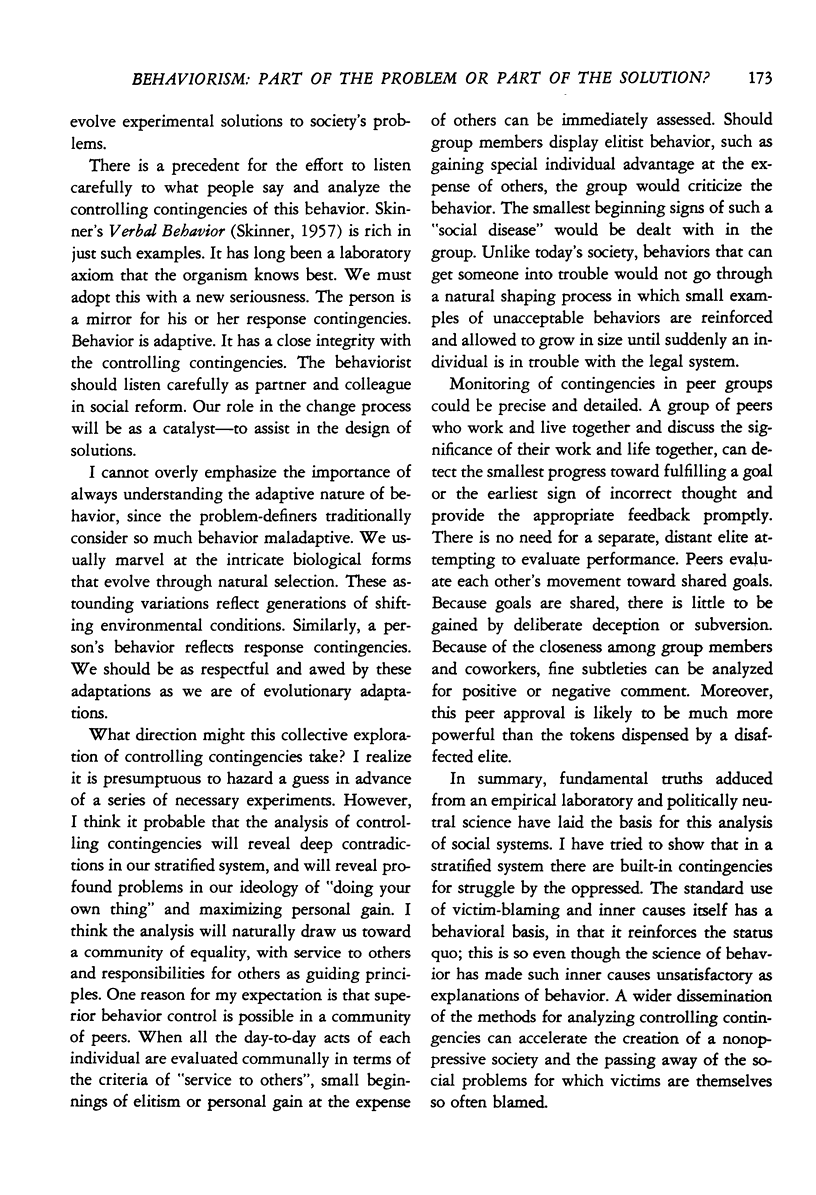
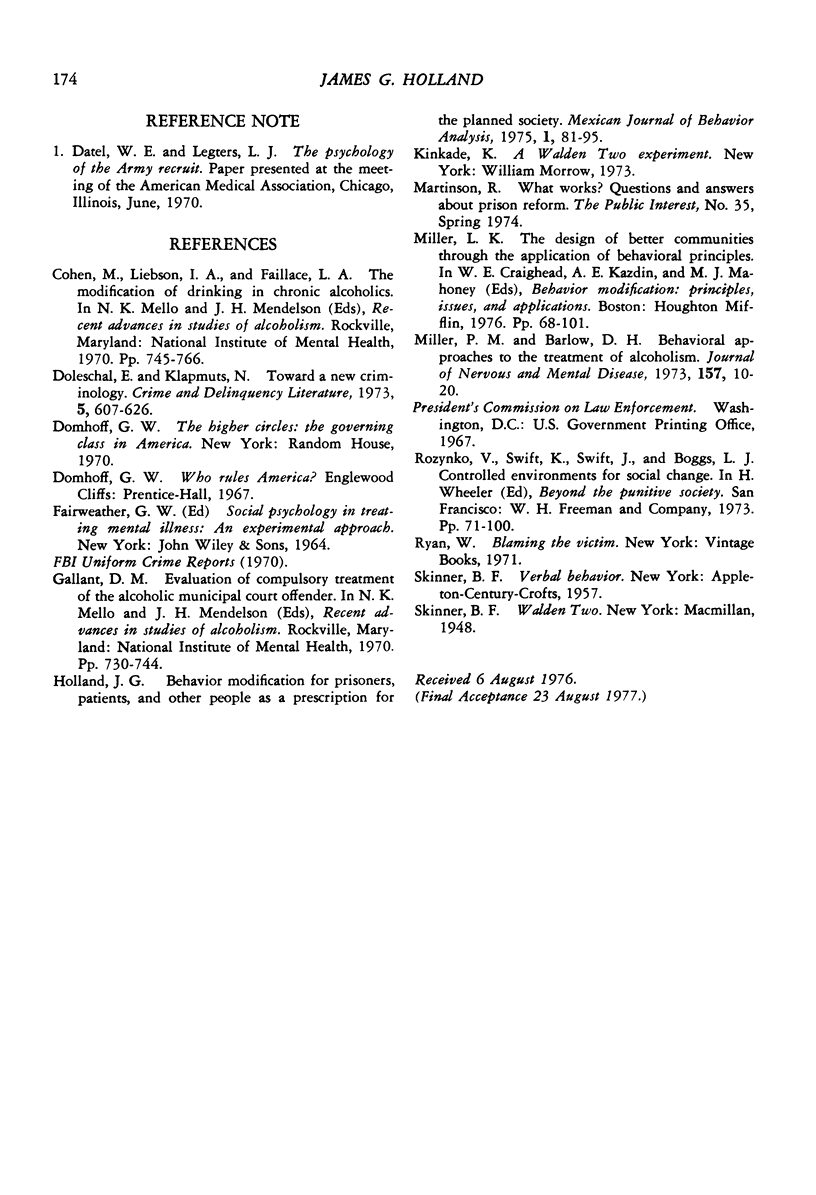
Selected References
These references are in PubMed. This may not be the complete list of references from this article.
- Miller P. M., Barlow D. H. Behavioral approaches to the treatment of alcoholism. J Nerv Ment Dis. 1973 Jul;157(1):10–20. doi: 10.1097/00005053-197307000-00002. [DOI] [PubMed] [Google Scholar]


